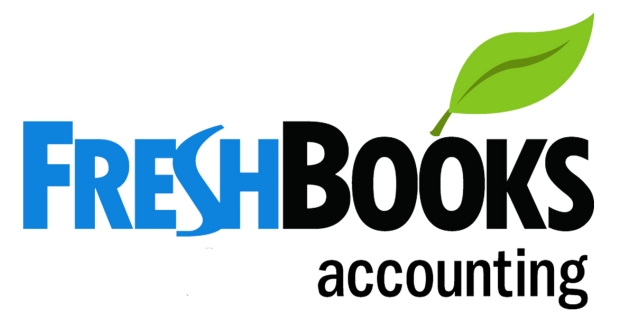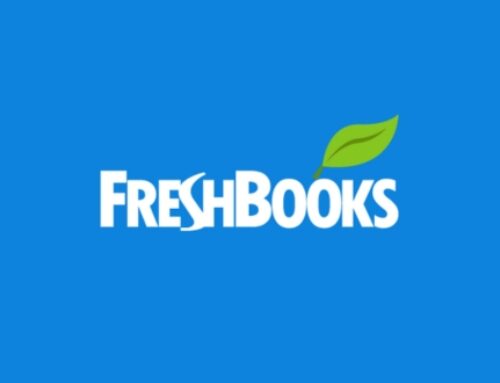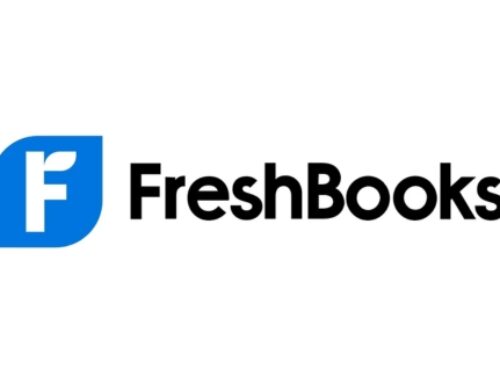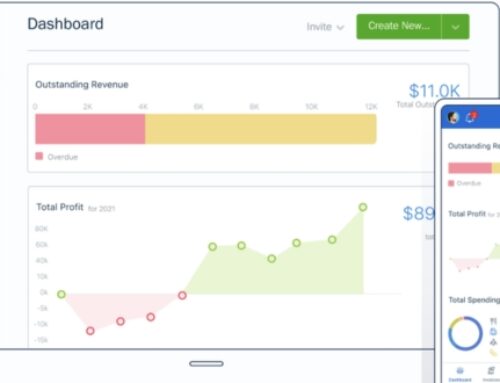Introduction to Manufacturing Accounting with FreshBooks

In the intricate landscape of manufacturing, accurate accounting emerges as the linchpin for sustained success. The precision with which financial transactions are recorded, production costs are monitored, and revenue is tracked can determine the trajectory of a manufacturing enterprise. In this section, we delve into the paramount importance of meticulous accounting practices within the manufacturing realm.
The Crucial Role of Accurate Accounting:
Accurate accounting is the bedrock upon which manufacturing financial stability is built. From raw material procurement to the final product’s delivery, every step in the production process involves financial transactions that demand careful documentation. A nuanced understanding of costs, revenues, and profit margins is imperative for effective decision-making and strategic planning.
Navigating the Complexities of Production Financial Management:
Production financial management entails multifaceted challenges, including:
- Cost Variability: Manufacturing involves diverse costs, from raw materials and labor to overhead expenses. Accurate accounting allows manufacturers to understand and control these variable costs, optimizing resource allocation for enhanced profitability.
- Regulatory Compliance: The manufacturing sector is subject to intricate regulatory frameworks. Precision in accounting ensures compliance with tax regulations, financial reporting standards, and industry-specific requirements, safeguarding the enterprise from legal complications.
- Supply Chain Integration: Manufacturing accounting extends beyond the factory floor to encompass the entire supply chain. Effective integration of financial data throughout the supply chain streamlines operations, minimizes inefficiencies, and fosters collaborative relationships with suppliers and distributors.
FreshBooks as the Pinnacle of Manufacturing Accounting Solutions:
Against this backdrop, FreshBooks emerges as a beacon of efficiency and simplicity in manufacturing accounting.
- User-Friendly Interface and Customization:
FreshBooks provides manufacturers with an intuitive interface designed for ease of use. Tailored specifically for manufacturing financial management, the platform allows users to customize their accounts, ensuring alignment with the unique financial structures of manufacturing enterprises.
- Real-Time Insights for Informed Decision-Making:
Crucially, FreshBooks offers real-time insights into the financial health of manufacturing operations. This feature empowers manufacturers to make informed decisions promptly, whether it involves adjusting production volumes, optimizing costs, or seizing new business opportunities.
- Seamless Integration with Manufacturing Software:
FreshBooks seamlessly integrates with a spectrum of manufacturing software, establishing a cohesive ecosystem for financial management. This integration streamlines the flow of financial data between different facets of manufacturing, from production planning to inventory management.
In essence, this section underscores the pivotal role of accurate accounting in manufacturing and introduces FreshBooks as a specialized solution that goes beyond standard accounting platforms, offering tailored features for manufacturing enterprises. As we proceed, we will delve deeper into setting up manufacturing accounts on FreshBooks, exploring its unique features, and understanding how it can revolutionize production financial management.
Establishing Your Manufacturing Accounts on FreshBooks
Embarking on the journey of setting up manufacturing accounts on FreshBooks is a pivotal step toward unlocking precision and efficiency in production financial management. In this comprehensive guide, we navigate through the process of creating specialized manufacturing accounts, tailoring settings to meet production financial needs, and seamlessly integrating FreshBooks with manufacturing software.
Creating Specialized Manufacturing Accounts:
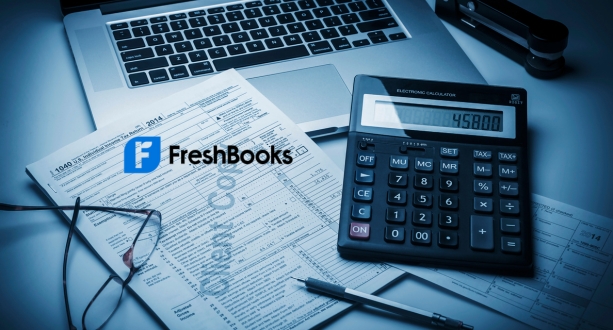
- Chart of Accounts Customization:
Begin by customizing the chart of accounts within FreshBooks to reflect the specific financial structure of manufacturing operations. This involves creating categories for raw material costs, labor expenses, overheads, and other production-related expenditures. By having specialized accounts, manufacturers gain granular insights into their financial landscape.
- Product-Centric Accounts:
Design accounts that revolve around the products being manufactured. Each product line should have its designated accounts for costs, revenues, and associated expenses. This approach allows for precise tracking of financial metrics on a per-product basis, facilitating strategic decision-making.
- Cost of Goods Sold (COGS) Accounts:
Implement a robust COGS accounting system. FreshBooks enables the creation of detailed COGS accounts for each product category, ensuring that direct costs attributed to the production of goods are accurately captured. This level of granularity aids in calculating gross profit margins with precision.
Customizing Settings for Production Financial Needs:
- Multi-Currency Capabilities:
Manufacturing often involves dealing with global suppliers and clients. Utilize FreshBooks’ multi-currency capabilities to set up accounts in different currencies. This feature ensures accurate financial records and transactions, regardless of the currency involved.
- Tax Customization:
Navigate FreshBooks’ tax customization settings to align with manufacturing tax obligations. Whether dealing with value-added taxes (VAT) or other industry-specific taxes, configuring tax settings accurately is crucial for compliance and financial accuracy.
- Budgeting and Forecasting:
Leverage FreshBooks’ budgeting and forecasting tools to set financial targets and project future income and expenses. In the dynamic realm of manufacturing, where market fluctuations and demand variations are common, proactive budgeting aids in financial preparedness.
Integrating FreshBooks with Manufacturing Software:

- Identifying Compatible Manufacturing Software:
Assess the manufacturing software currently in use and identify those that seamlessly integrate with FreshBooks. Popular manufacturing software includes systems for production planning, inventory management, and order fulfillment. Compatibility ensures a smooth flow of financial data across the entire production ecosystem.
- Syncing Inventory Systems:
For manufacturers dealing with complex inventory management, syncing FreshBooks with inventory systems is paramount. This integration enables real-time tracking of stock levels, automatic updates of cost of goods sold, and precise financial reporting.
- Streamlining Order Fulfillment:
Integrate FreshBooks with order fulfillment systems to streamline the invoicing and payment processes associated with manufacturing orders. Automation in order fulfillment enhances efficiency and reduces the likelihood of errors.
- Automation of Production Metrics:
Explore automation options for capturing production metrics. Integration with manufacturing software allows FreshBooks to automatically record production data, providing accurate and up-to-date insights into manufacturing costs and performance.
In conclusion, setting up manufacturing accounts on FreshBooks involves meticulous customization and integration, tailored to the unique needs of the manufacturing sector. By creating specialized accounts, customizing settings, and integrating seamlessly with manufacturing software, FreshBooks becomes a central hub for precise and efficient production financial management. As we proceed, we will delve into the specifics of navigating the manufacturing dashboard in FreshBooks, exploring the features that make it an invaluable tool for manufacturers.
Mastering the Manufacturing Dashboard in FreshBooks
The heart of efficient production financial management lies within the Manufacturing Dashboard in FreshBooks. Tailored specifically for the complex landscape of manufacturing operations, this dashboard unveils a suite of features and key accounting tools designed to empower manufacturers. In this section, we explore the intricacies of navigating the Manufacturing Dashboard, understanding its user-friendly interface, and accessing essential accounting tools.
Features Tailored for Manufacturing Operations:
- Real-Time Financial Insights:
The Manufacturing Dashboard provides manufacturers with real-time financial insights. Track income, expenses, and overall financial health at a glance. This feature is instrumental in making informed decisions promptly, ensuring that manufacturers stay ahead in the dynamic landscape of production.
- Production Cost Tracking:
Delve into detailed production cost tracking features. The dashboard allows manufacturers to monitor costs associated with raw materials, labor, and overheads. This granular level of insight aids in identifying cost inefficiencies and optimizing resource allocation for enhanced profitability.
- Inventory Management Overview:
Gain an overview of inventory levels and movement. The dashboard’s inventory management features provide visibility into stock levels, ensuring manufacturers are well-informed about their product availability and can make data-driven decisions related to production and order fulfillment.
- Order and Invoice Tracking:
Track manufacturing orders and associated invoices seamlessly. The dashboard consolidates information related to orders in progress, completed orders, and outstanding invoices. This centralized view streamlines the production workflow, reducing the risk of oversights and ensuring timely invoicing.
Accessing Key Accounting Tools for Manufacturers:
- Cost of Goods Sold (COGS) Analysis:
Dive into COGS analysis tools available on the dashboard. Manufacturers can scrutinize COGS data on a product-specific level, allowing for a comprehensive understanding of direct costs associated with each manufactured item. This analysis informs pricing strategies and profit margin optimization.
- Profit and Loss Statements:
Generate detailed profit and loss statements directly from the dashboard. Manufacturers can assess the financial performance of their operations over specific periods, identify areas for improvement, and make strategic decisions based on comprehensive financial data.
- Cash Flow Monitoring:
Monitor cash flow with dedicated tools for cash flow analysis. The dashboard provides insights into the inflow and outflow of funds, enabling manufacturers to maintain healthy liquidity and make proactive financial decisions to support ongoing production.
Understanding the User Interface for Production Financial Management:
- Intuitive Design for Ease of Use:
The Manufacturing Dashboard boasts an intuitive design, ensuring ease of use for manufacturers. The layout is structured to provide quick access to critical financial metrics and tools, minimizing the learning curve for users.
- Customizable Widgets:
Tailor the dashboard to individual preferences with customizable widgets. Manufacturers can arrange and prioritize widgets based on their specific needs, ensuring that the dashboard aligns seamlessly with the unique financial priorities of their production operations.
- Interactive Charts and Graphs:
Visualize financial data through interactive charts and graphs. The user-friendly interface incorporates visual elements that enhance the comprehension of complex financial information, allowing manufacturers to grasp trends and patterns at a glance.
- Responsive Design for Mobility:
The Manufacturing Dashboard is designed to be responsive, catering to the mobility needs of manufacturers. Access critical financial data and tools on-the-go through mobile devices, ensuring that manufacturers are connected to their production financial management wherever they are.
In conclusion, the Manufacturing Dashboard in FreshBooks emerges as a powerhouse for manufacturers, offering features tailored to their operational intricacies. By providing real-time financial insights, access to key accounting tools, and a user-friendly interface, the dashboard becomes an invaluable asset in the pursuit of precision and efficiency in production financial management. As we progress, we will delve deeper into managing finances in manufacturing with FreshBooks, exploring tools and strategies for tracking revenue, managing expenses, and optimizing overall financial performance.
Orchestrating Financial Precision in Manufacturing with FreshBooks
Effectively managing finances in manufacturing is a nuanced task that requires a comprehensive approach. In this section, we delve into the intricacies of using FreshBooks to track revenue and expenditure in production, manage material costs and inventory, and leverage the platform for accurate Cost of Goods Sold (COGS) calculations.
Tracking Revenue and Expenditure in Production:
- Streamlined Revenue Tracking:
FreshBooks facilitates streamlined revenue tracking by providing dedicated tools for recording income generated through manufacturing activities. Manufacturers can categorize revenue sources, whether it be from product sales, services, or other income streams, offering a clear overview of the financial inflow.
- Expense Monitoring and Control:
Managing expenditure is equally critical in maintaining financial health. FreshBooks allows manufacturers to monitor and control expenses associated with production, including raw material procurement, labor costs, utilities, and overheads. This meticulous tracking enables a proactive approach to cost management.
- Project-Based Financial Insights:
For manufacturers engaged in project-based work, FreshBooks offers project accounting features. This allows for financial insights specific to each project, enhancing visibility into project profitability, resource allocation, and overall financial performance.
Managing Material Costs and Inventory:
- Dynamic Material Cost Tracking:
Material costs constitute a substantial portion of manufacturing expenses. FreshBooks enables dynamic material cost tracking by providing tools to record and analyze the costs associated with raw materials, ensuring accurate financial records and informed decision-making regarding procurement.
- Just-In-Time Inventory Management:
FreshBooks supports just-in-time inventory management strategies by offering real-time visibility into inventory levels. Manufacturers can optimize stock levels based on demand forecasts, reducing holding costs and minimizing the risk of overstock or stockouts.
- Inventory Valuation Techniques:
The platform incorporates various inventory valuation techniques, allowing manufacturers to choose methods that align with their financial reporting preferences. Whether using the FIFO (First-In, First-Out) or weighted average method, FreshBooks ensures consistency in inventory valuation.
Utilizing FreshBooks for Cost of Goods Sold (COGS) Calculations:
- Granular COGS Analysis:
FreshBooks empowers manufacturers with granular COGS analysis tools. The platform breaks down the cost of goods sold on a per-product basis, offering a detailed understanding of direct costs associated with manufacturing each item. This granularity aids in pricing strategies and profitability assessments.
- Automated COGS Calculations:
Streamline COGS calculations with automation features. FreshBooks automates the process of calculating COGS, reducing manual efforts and the likelihood of errors. This ensures that manufacturers consistently maintain accurate financial records for cost of goods sold.
- COGS as a Performance Metric:
COGS serves not only as a financial metric but also as a key performance indicator (KPI) for manufacturing operations. FreshBooks allows manufacturers to track COGS as a percentage of revenue, providing insights into operational efficiency and profitability.
In essence, managing finances in manufacturing with FreshBooks involves a holistic approach that spans revenue tracking, expenditure management, material cost control, and accurate COGS calculations. The platform’s features are intricately designed to cater to the specific needs of manufacturers, offering real-time insights and tools for financial precision. As we move forward, we will explore the strategies and best practices for invoicing and billing in manufacturing with FreshBooks, ensuring a seamless financial workflow from production to client transactions.
Crafting Seamless Invoicing and Billing Strategies for Manufacturers
In the intricate realm of manufacturing, where precision and efficiency are paramount, devising effective invoicing and billing strategies is instrumental for financial success. In this section, we explore how FreshBooks empowers manufacturers by providing tools for creating professional invoices, setting up recurring invoicing for ongoing production contracts, and seamlessly integrating payment gateways to ensure smooth transactions.
Creating Professional Invoices for Manufacturing Services:
- Customizable Invoice Templates:
FreshBooks offers customizable invoice templates that allow manufacturers to create professional and branded invoices tailored to their unique services. The platform’s intuitive interface ensures that manufacturers can effortlessly input relevant details such as product descriptions, quantities, and prices.
- Detailed Line-Item Breakdown:
To enhance transparency and clarity, FreshBooks enables manufacturers to provide a detailed line-item breakdown on their invoices. This breakdown can include individual products, associated costs, and any additional charges, providing clients with a comprehensive overview of the services rendered.
- Branded Invoice Emails:
Elevate the professionalism of invoice communication by utilizing FreshBooks’ feature for branded invoice emails. Manufacturers can personalize email templates, ensuring that client communications align with their brand identity.
Setting Up Recurring Invoicing for Ongoing Production Contracts:
- Efficient Billing for Ongoing Relationships:
For manufacturers engaged in ongoing production contracts, FreshBooks simplifies the invoicing process with recurring billing functionalities. Set up automated recurring invoices based on contract terms, ensuring that invoices are generated and sent promptly without manual intervention.
- Flexibility in Recurring Billing Frequency:
FreshBooks provides flexibility in determining the frequency of recurring invoices. Manufacturers can set up monthly, quarterly, or customized billing cycles, accommodating the diverse billing structures often associated with long-term manufacturing contracts.
- Automated Payment Reminders:
Ensure timely payments by utilizing FreshBooks’ automated payment reminder features. The platform sends automated reminders to clients before and after invoice due dates, reducing the likelihood of delayed payments and enhancing cash flow management.
Integrating Payment Gateways for Smooth Transactions in Manufacturing:
- Diverse Payment Options:
FreshBooks integrates seamlessly with various payment gateways, allowing manufacturers to offer clients diverse payment options. Whether through credit cards, bank transfers, or online payment platforms, the integration ensures a convenient and flexible payment experience for clients.
- Secure and Encrypted Transactions:
Prioritizing security, FreshBooks ensures that all transactions processed through integrated payment gateways are secure and encrypted. Manufacturers can instill confidence in their clients by providing a safe and trustworthy payment environment.
- Real-Time Payment Status Updates:
Track payment statuses in real-time with FreshBooks’ integrated payment gateways. Manufacturers gain immediate insights into successful transactions, reducing the need for manual reconciliation and enhancing overall financial visibility.
In conclusion, FreshBooks equips manufacturers with a robust set of tools to streamline their invoicing and billing processes. By creating professional invoices, facilitating recurring invoicing for ongoing contracts, and integrating secure payment gateways, the platform ensures that manufacturers can focus on their core competencies while maintaining a smooth and efficient financial workflow. As we progress, we will explore the mobility offered by the FreshBooks Mobile App for manufacturers, providing insights into managing accounts on the go and leveraging mobile accounting features for enhanced efficiency.
Achieving Operational Harmony: Integrating FreshBooks with Manufacturing Tools and E-commerce Platforms
In the dynamic landscape of manufacturing, operational harmony is the key to success. FreshBooks stands as a linchpin, seamlessly integrating with manufacturing software and e-commerce platforms to elevate financial workflows, automate production processes, and streamline orders and payments. In this section, we explore the pivotal role of integration, shedding light on how FreshBooks fosters efficiency and connectivity in the manufacturing realm.
Seamless Integration with Manufacturing Software:
- Holistic Production Ecosystem:
FreshBooks serves as the epicenter of a holistic production ecosystem by seamlessly integrating with various manufacturing software. This integration ensures that financial data, production metrics, and inventory information flow seamlessly between FreshBooks and specialized manufacturing tools. The result is a cohesive and interconnected environment that enhances operational efficiency.
- Real-Time Data Synchronization:
Achieve real-time data synchronization between FreshBooks and manufacturing software. Any updates or changes in production, inventory levels, or other critical data are reflected instantly in FreshBooks, providing manufacturers with up-to-the-minute insights into their financial landscape.
- Enhanced Accuracy in Financial Reporting:
The integration eliminates manual data entry and the risk of errors associated with duplicate or outdated information. This enhanced accuracy in financial reporting empowers manufacturers to make data-driven decisions with confidence, knowing that their financial insights are based on the most current and reliable information.
Enhancing Financial Workflows through Automation in Production:
- Automated Expense Categorization:
Streamline financial workflows by automating the categorization of expenses. FreshBooks, when integrated with manufacturing software, can automatically categorize expenses related to production, ensuring that financial records are accurate and reflective of the dynamic nature of manufacturing operations.
- Invoice Automation for Production Milestones:
For manufacturers engaged in project-based work, FreshBooks automation features can be harnessed to create and send invoices based on project milestones. This not only expedites the invoicing process but also ensures that clients are billed accurately and timely for completed production milestones.
- Production Metrics at Your Fingertips:
Leverage automation to have production metrics at your fingertips. By integrating FreshBooks with manufacturing software, manufacturers can set up automated reports that provide insights into key production metrics, enabling proactive decision-making and performance optimization.
Streamlining Orders and Payments for Manufacturing Products:
- Efficient Order Fulfillment:
Integrate FreshBooks with order fulfillment systems for efficient processing of manufacturing orders. Automation in order fulfillment ensures that invoices are generated promptly, payments are tracked in real-time, and clients receive timely updates on the status of their orders.
- Payment Gateway Integration:
Ensure seamless transactions by integrating FreshBooks with payment gateways. Manufacturers can offer clients a variety of payment options, from credit cards to online payment platforms, creating a frictionless payment experience and reducing delays in the order-to-payment cycle.
- E-commerce Integration for Manufacturers:
For manufacturers with an online presence, integrate FreshBooks with e-commerce platforms. This integration ensures that orders placed through the online storefront are seamlessly integrated into FreshBooks, enabling manufacturers to manage orders, track payments, and maintain accurate financial records.
In conclusion, the integration of FreshBooks with manufacturing software and e-commerce platforms redefines the operational landscape for manufacturers. By fostering connectivity, automating financial workflows, and streamlining orders and payments, FreshBooks empowers manufacturers to navigate the complexities of production with agility and precision. As we proceed, we will explore tips for maximizing FreshBooks efficiency in manufacturing, providing insights into shortcuts, automation features, and staying updated on the latest functionalities for optimal financial management.
Elevating Efficiency: Tips for Maximizing FreshBooks in Manufacturing
In the fast-paced realm of manufacturing, efficiency is paramount. FreshBooks, with its versatile features, can be optimized to streamline financial processes and enhance overall efficiency. Here are essential tips for manufacturing professionals to extract maximum value from FreshBooks:
Shortcuts and Time-Saving Features for Manufacturing Professionals:
- Customized Dashboard Shortcuts:
Tailor your FreshBooks dashboard with customized shortcuts for quick access to frequently used features. This minimizes navigation time, allowing manufacturing professionals to swiftly navigate to critical financial tools and metrics.
- Batch Invoicing for Bulk Transactions:
Utilize the batch invoicing feature to streamline the invoicing process for bulk transactions. This time-saving feature is particularly beneficial for manufacturers dealing with large volumes of orders and services.
Leveraging Automation for Efficient Financial Processes in Production:
- Automated Expense Tracking:
Take advantage of FreshBooks’ automated expense tracking. Link bank accounts and credit cards to FreshBooks to automatically import and categorize expenses, eliminating manual data entry and ensuring real-time accuracy.
- Set Up Recurring Expenses:
For recurring operational expenses, set up automated recurring expenses in FreshBooks. This eliminates the need to manually input repetitive expenditures, freeing up time for manufacturing professionals to focus on strategic financial decisions.
Staying Updated on FreshBooks Features for Manufacturing Optimization:
- Regularly Review FreshBooks Updates:
Stay informed about the latest features and updates in FreshBooks. The platform continually evolves, introducing new functionalities and improvements. Regularly reviewing updates ensures that manufacturing professionals are leveraging the full spectrum of tools available for financial optimization.
- Participate in Training and Webinars:
FreshBooks often conducts training sessions and webinars to educate users on advanced features. Manufacturing professionals can benefit from participating in these sessions to deepen their understanding of FreshBooks capabilities and uncover tips for efficient financial management.
Incorporating these tips into daily operations not only enhances the efficiency of financial processes but also positions manufacturing professionals to harness the full potential of FreshBooks. By embracing shortcuts, leveraging automation, and staying updated on features, manufacturers can navigate the financial intricacies of production with precision and agility. As we conclude, the next section will delve into summarizing the key takeaways and concluding thoughts on how FreshBooks revolutionizes financial management in the manufacturing sector.
Conclusion
FreshBooks emerges as an indispensable ally in the manufacturing sector, revolutionizing accounting practices and financial management. This comprehensive guide has explored the intricacies of leveraging FreshBooks for manufacturing accounting, from setting up specialized accounts to seamlessly integrating with manufacturing tools and e-commerce platforms.
Manufacturers can harness the power of FreshBooks to track revenue, manage expenses, and conduct precise Cost of Goods Sold (COGS) calculations. The platform’s user-friendly interface, tailored features, and integration capabilities provide a holistic solution for efficient financial workflows.
Furthermore, by incorporating tips for maximizing FreshBooks efficiency, manufacturing professionals can navigate the complexities of their industry with unparalleled ease. From shortcuts and time-saving features to automation and staying updated on the latest functionalities, FreshBooks empowers manufacturers to optimize their financial processes and focus on strategic decision-making.
In essence, FreshBooks not only streamlines accounting tasks but also becomes a strategic partner, enabling manufacturers to achieve financial precision, operational efficiency, and sustained growth in an ever-evolving manufacturing landscape.

